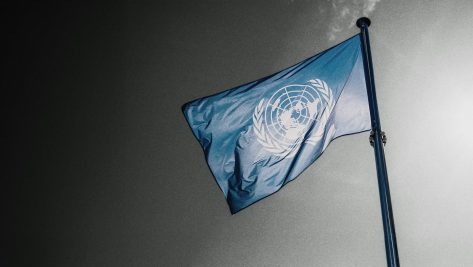Germany’s Challenges: Dependence and Resilience
Transcription
Germany finds itself in the current geo-strategic environment in a particularly difficult position. It is, I think, the world’s fourth-biggest economy. It is profoundly interdependent with global economic and financial strains and with migration strains. It had outsourced its security to the United States, its energy security to Russia, and its trade-based growth to China.
And in the current geostrategic environment, all of those premises for German prosperity, wealth, safety, security are in question. The war in Ukraine is forcing us to revise our resilience, our defense, our deterrents, and has made Germany become the second-biggest military supplier to Ukraine. At the same time, it became very clear immediately that the Russians were going to use – and had in fact been using – our energy dependency on Russian fossil fuel imports as a political weapon.
The term for this is weaponization of interdependence. And in fact, it became clear around the full-scale invasion that the Russians had deliberately let the level of gas in the big German storage units decline to near-zero levels, which was important because we were re-suppliers of gas to some of our Eastern European neighbors.
What saved us was a variety of things; two comparatively mild winters, a German government that was willing to say we will not be bullied and blackmailed by Russia, and that decoupled from Russian coal within months, decoupled from Russian oil within a couple more months. And then we were only going to decouple from Russian gas by the end of 2024.
But the Russians did it for us by cutting off our gas in I believe September of 2023. That was terrifying for German industry, which was heavily dependent on gas. And of course, German consumers used it as well. And so the other thing that the German government then had to do was to massively subsidize German industry and consumers and of course, hoovering up LNG on world markets and building at record speed LNG terminals.
We were the one country in Europe that didn’t have any LNG terminals, again, because we had massively banked on pipelines. And of course, no depiction of this course of events can be complete without references to the still unexplained explosion of Nord Stream 2, the latest pipeline through the Baltic Sea to Russia. The energy dependency of Germany on Russia is practically at zero.
I say practically, because we are still importing LNG via others from Russia. That’s not generally known, it’s small quantities, but it’s still happening. And then there’s the China part, which is much more complicated because we are interdependent with the Chinese economy in much more complicated ways. The return on investment for German industry has been much, much bigger than it ever was for Russia.
And when I say return on investment, I say that deliberately because we weren’t just selling stuff to the Chinese. We were also investing massively, building huge chemical plants in China. Unfortunately, what the Chinese have been doing recently suggests that they have chosen a path that is actually quite similar to what the Russians were doing a decade ago.
You know, we thought that we were going to bring the Russians into Europe by a trade relationship, but also democratic transformation in Russia. The reality was that German small and medium enterprises got burned in Russia, and the big ones also slowly started dribbling away. And it appears that something not dissimilar is happening in China right now. But that is more problematic because you aren’t just – if you are trying to mitigate that relationship, you are looking at a whole spectrum of manufacturing and investment relationships, which are not easily substitutable.
And that is one of the great challenges of dealing with a China that has become much more forceful, much more aggressive in the European space and indeed in the German space. Both the European Union and the Germans have been, rather more proactive than they have been in the past in arresting Chinese spies. and I suspect that we’re going to be seeing more of that in the near future.










